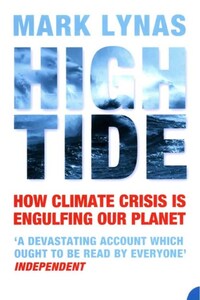There was something different about the rain that night. I noticed it as I lay awake – a purposeful, remorseless drumming on the roof, as if determined to force its way into the house. It rained all night, the claustrophobic intensity of the downpour leaking insidiously into my dreams.
The next day dawned bright and even warm, its weak autumnal sunshine driving away the uneasiness of the previous night. But half a mile from my house, the Thames already looked very different. Instead of the usual sluggish flow, the brown water was racing angrily by. Small whirlpools and eddies played in the strong current, and freshly-torn branches floated past.
The wildlife too indicated that something was wrong: hundreds of earthworms, forced out of their holes by the water, were wriggling uselessly on the banks. Some of the lower watermeadows had been submerged by the rising river, and deep chalky puddles lined the towpath as I splashed through on my bike.
It was almost as a challenge to the elements that I dragged a friend’s kayak down to the riverbank, and – after a brief wobble of trepidation – launched myself into the water. The last thing I remember seeing, as I shot out into the strong current, was my bike propped against a willow tree on the bank.
As I sped downstream, it gradually dawned on me that I had made a mistake. I couldn’t turn around without the risk of capsizing, and I didn’t want to find myself flung into the water so close to the weir. I had already taken the right-hand fork at the island, under the ‘Danger’ sign that warned bigger boats away, and could hear the muffled roar of the rapids ahead.
A few minutes later I could even smell the spray. I eased closer to the bank as the weir came into view, its ugly steel gates fully raised to let through the maximum volume of the swollen river. On the right bank, under a grove of poplars, was the grey concrete memorial to an Oxford University canoeing team who had lost their lives in the same spot almost a century before.
As I should have known it would, the increasing current took me by surprise. I had aimed to pass opposite the weir by hugging the bank on the other side, and then continue on round to the main channel. But the tug was stronger now, and within a few seconds I was away from the bank and losing control. I tried to paddle backwards, but succeeded only in spinning round with a dangerous near-capsizing wobble. All the while the roaring waterfall moved inexorably closer.
I dug the paddles in deeply, as if on a liquid treadmill. I pulled harder, gasping from both the exertion and the adrenalin, until the speed of my kayak began to gradually outpace the water flowing underneath.
Nearing the bank again, I grabbed at an overhanging willow branch. The whole thing snapped off – it’s not called ‘crack willow’ for nothing – the surprise nearly catapulting me into the water. Instead I snatched at a handful of stinging nettles and thorny brambles, clinging to them with relief as I came in close to the bank and safety.
For weeks afterwards the placid Thames became virtually unnavigable. Within hours of my ill-considered kayaking trip, much of the Botley and Abingdon roads – two of the principal traffic arteries leading into Oxford – were underwater. It didn’t spill over from the river directly, but instead appeared spontaneously in low points along the road, surging out from manhole covers and drains. In places the water was over a foot deep.
Further towards the centre of town, Osney Island was also inundated: each house had sandbags across the front door, and small rivers were beginning to flow down some of the lower streets. On the other side of the road allotments were gradually disappearing under the muddy flood. Sightseers were savouring the unusual scene.
A white-haired woman appeared on the towpath. ‘It’s all in the Bible,’ she told me furtively, before scampering back behind her garden wall. ‘This is the beginning of the end.’
She wasn’t the only one to feel something different in the air, that week back in autumn 2000. Radio phone-in shows echoed with a phrase that had been in the national subconscious for a long time, but which was now breaking out into the open: climate change. Long the preserve of only scientists and environmental campaigners, the phrase began to reverberate in day-to-day conversations across the country. The British have always talked about the weather, but the weather was no longer behaving like it used to. Something was wrong.
Even politicians showed signs of noticing it. Tony Blair flew to flooded areas in a helicopter, announcing to journalists his determination not just to improve flood defences but to ‘tackle climate change at the international level’, whatever that meant. Blair’s deputy John Prescott paraded around in wellington boots, also looking suitably grim for the cameras. ‘All these incidents of climate change are reminding everyone, wherever they are in developed or developing countries, that this affects us all,’ he lectured sternly, hiding from the bucketing rain under a temporary shelter of reporters’ umbrellas.











